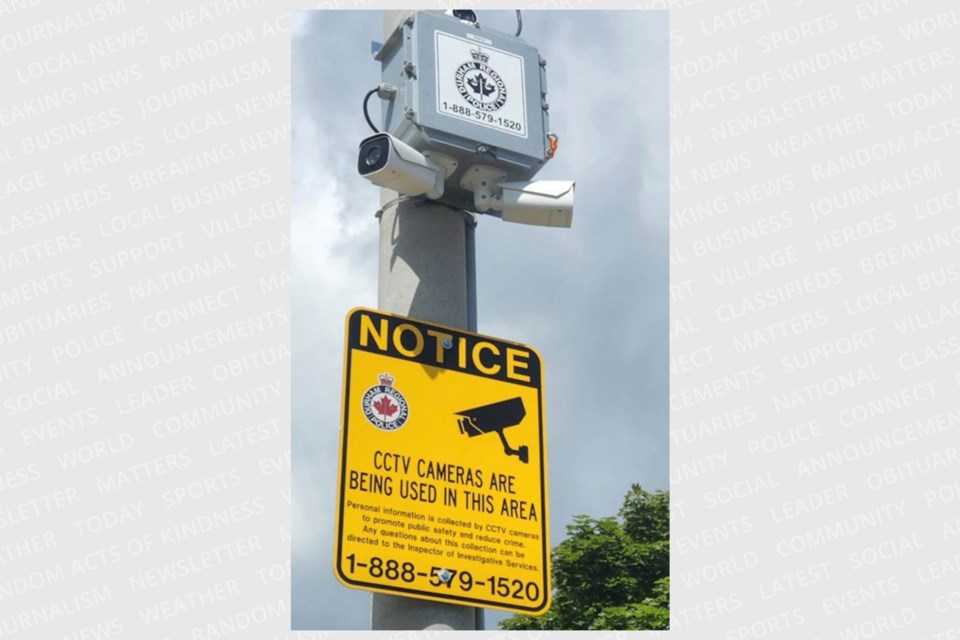The York Regional Police Services Board has approved the implementation and use of closed-circuit television (CCTV) video cameras in public spaces in the Regional Municipality of York and the nine local municipalities in the region.
York Regional Police have received $200,000 in provincial grant funding for the purchase of the CCTV cameras to address the challenge of combating violence in communities in the region.
Deputy Chief Paulo Da Silva says the objective of the CCTV program is to address criminal and public safety concerns through the deterrence of crime by improving police response, enhancing the perception of safety, and using camera recordings as evidence to support criminal investigations.
Using a data-driven approach, York Regional Police have identified 10 locations in the region for the installation of CCTV cameras.
The locations are Yonge Street and Davis Drive in Newmarket, Yonge Street and Wellington Street in Aurora, Church Street and The Queensway in Georgina, Highway 7 and Woodbine Avenue in Markham, Warden Avenue and Highway 7 in Markham, Yonge Street and Carrville Road in Richmond Hill, Yonge Street and Crosby Avenue in Richmond Hill, Jane Street and Norwood Avenue in Vaughan, Jane Street and Avro Road in Vaughan, and Steeles Avenue and Islington Avenue in Vaughan.
Police said these 10 locations will be reevaluated within a year to ensure they remain areas of concern, but will be fixed in the selected locations for at least one year.
They are dome cameras to capture an entire area York Regional Police’s data has identified as hot spots for crime. Some will be in intersections while others are in specific areas that have high crime density.
As part of the program, signs will be displayed to inform the public of CCTV camera monitoring to ensure transparency and compliance with privacy regulations. Contact information will also be available on the signs for any inquiries about the program.
The views of the cameras are restricted to prohibit the viewing of private dwelling spaces. If cameras are adjustable by the operators, these adjustments are restricted so operators cannot adjust or manipulate them to overlook spaces to which the public does not have access.
“We will adhere to the strict ethical and legal principles of the use of CCTV,” said Da Silva, “ensuring professional conduct, lawful collection and retention, monitoring of public spaces only, through proper training and auditing.”
York Regional Police will be responsible for the training, conduct, and monitoring of the public spaces.
An annual report will evaluate the program’s effectiveness, measuring its impact on crime and assessing public opinion.
Da Silva said the program offers a cost-effective and impactful solution to deter crime and violence.
“I think it’s been proven with other police services that these eyes in the sky work fantastic and work well,” said Vaughan Deputy Mayor Linda Jackson. “I’d like to see more of them.”
While the program would start by implementing in the 10 specified locations, York Regional Police say they have a list of 27 hot spots in the region where the program could expand.
“This is the first foray in,” said Da Silva. “We expect it will be successful and we look to further enhance the grant opportunity and expand it throughout the municipalities.”
There will be public consultation at a later date on the program to educate about it and allow the community an opportunity to comment on the specifics — camera location, program necessity — through town halls, social media, and other opportunities.
The board will now move forward with entering into an agreement with the Regional Municipality of York and the nine local municipalities to install the CCTV cameras on their municipal infrastructure.



